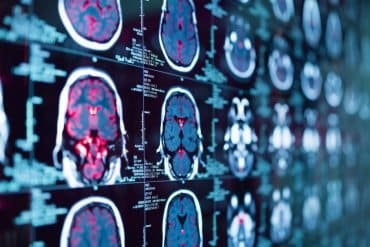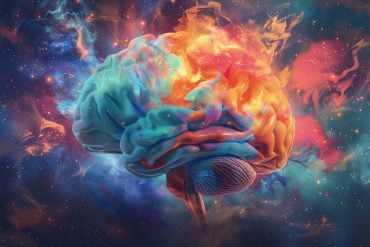A novel research tool developed by researchers from the Institute of Psychiatry, Psychology & Neuroscience (IoPPN) at King’s College London has identified a link between the negative symptoms experienced by people with schizophrenia and adverse clinical outcomes.
Negative symptoms can include poor motivation, poor eye contact and a reduction in speech and activity. As a result, people with schizophrenia often appear emotionless, flat and apathetic. These contrast with positive symptoms – psychotic behaviours not seen in healthy people, such as delusions or hallucinations.
Published today in BMJ Open, the study is the largest- ever to investigate a relationship between negative symptoms and clinical outcomes, drawing from a sample of more than 7,500 patients.
Researchers used the Clinical Record Interactive Search (CRIS) application, a text-mining tool, to analyse anonymised patient data on negative symptoms from the South London and Maudsley NHS Foundation Trust (SLaM) Biomedical Research Centre (BRC) Case Register.
Natural Language Processing (NLP) was used to detect statements within the clinical records which determined references to specified negative symptoms. 10 negative symptoms were identified, including poor motivation, blunted or flattened mood, poor eye contact, emotional withdrawal, poor rapport, social withdrawal, poverty of speech (excessively short speech with minimal elaborations), inability to speak, apathy and concrete thinking (the inability to think in abstract terms).
They found that 41 per cent of patients showed the presence of two or more negative symptoms. Negative symptoms across the sample were associated with an increased likelihood of hospital admission, longer duration of admission and an increased likelihood of re-admission following discharge from hospital.
Patients with two or more negative symptoms were 24 per cent more likely to have been admitted to hospital. In addition, each of their admissions were, on average, an extra 21 days in duration and, when discharged, these individuals had a 58 per cent higher risk of re-admission within 12 months.

The most frequently recorded negative symptoms were poor motivation (31 per cent), blunted or flattened mood (27 per cent), poor eye contact (26 per cent) and emotional withdrawal (24 per cent).
Dr Rashmi Patel from the Department of Psychosis Studies at the IoPPN, said: ‘Hospital admissions are the main drivers of cost in the care of patients with schizophrenia – yet they have traditionally been linked to the severity of positive psychotic symptoms.
‘Our data indicate that negative symptoms are an equally important factor, and suggest that a greater emphasis on assessing and treating these features of schizophrenia may have significant health economic benefits.
‘However, as our findings are drawn from observational data, interventional clinical studies are required to determine whether an effective treatment for negative symptoms would lead to better clinical outcomes.’
Funding: This research was funded by the National Institute for Health Research (NIHR) Biomedical Research Centre (BRC) at the South London and Maudsley NHS Foundation Trust (SLaM) and King’s College London.
Source: Jack Stonebridge – King’s College London
Image Source: The image is adapted from the King’s College London press release
Original Research: Full open access research for “Negative symptoms in schizophrenia: a study in a large clinical sample of patients using a novel automated method” by Rashmi Patel, Nishamali Jayatilleke, Matthew Broadbent, Chin-Kuo Chang, Nadia Foskett, Genevieve Gorrell, Richard D Hayes, Richard Jackson, Caroline Johnston, Hitesh Shetty, Angus Roberts, Philip McGuire, and Robert Stewart in BMJ Open. Published online September 8 2015 doi:10.1136/bmjopen-2015-007619
Abstract
Negative symptoms in schizophrenia: a study in a large clinical sample of patients using a novel automated method
Objectives To identify negative symptoms in the clinical records of a large sample of patients with schizophrenia using natural language processing and assess their relationship with clinical outcomes.
Design Observational study using an anonymised electronic health record case register.
Setting South London and Maudsley NHS Trust (SLaM), a large provider of inpatient and community mental healthcare in the UK.
Participants 7678 patients with schizophrenia receiving care during 2011.
Main outcome measures Hospital admission, readmission and duration of admission.
Results 10 different negative symptoms were ascertained with precision statistics above 0.80. 41% of patients had 2 or more negative symptoms. Negative symptoms were associated with younger age, male gender and single marital status, and with increased likelihood of hospital admission (OR 1.24, 95% CI 1.10 to 1.39), longer duration of admission (β-coefficient 20.5 days, 7.6–33.5), and increased likelihood of readmission following discharge (OR 1.58, 1.28 to 1.95).
Conclusions Negative symptoms were common and associated with adverse clinical outcomes, consistent with evidence that these symptoms account for much of the disability associated with schizophrenia. Natural language processing provides a means of conducting research in large representative samples of patients, using data recorded during routine clinical practice.
“Negative symptoms in schizophrenia: a study in a large clinical sample of patients using a novel automated method” by Rashmi Patel, Nishamali Jayatilleke, Matthew Broadbent, Chin-Kuo Chang, Nadia Foskett, Genevieve Gorrell, Richard D Hayes, Richard Jackson, Caroline Johnston, Hitesh Shetty, Angus Roberts, Philip McGuire, and Robert Stewart in BMJ Open. Published online September 8 2015 doi:10.1136/bmjopen-2015-007619






